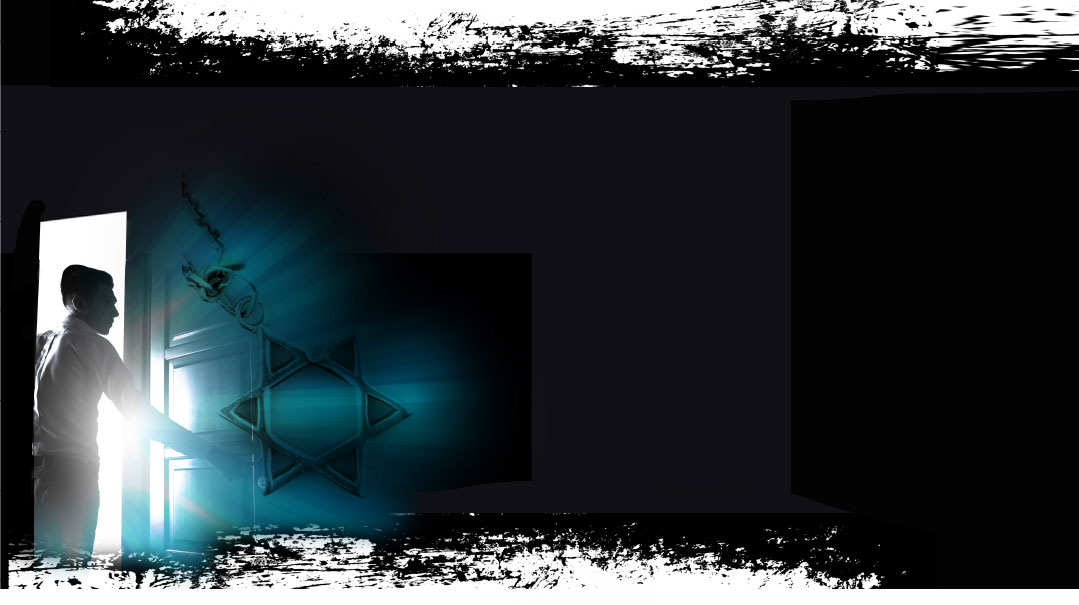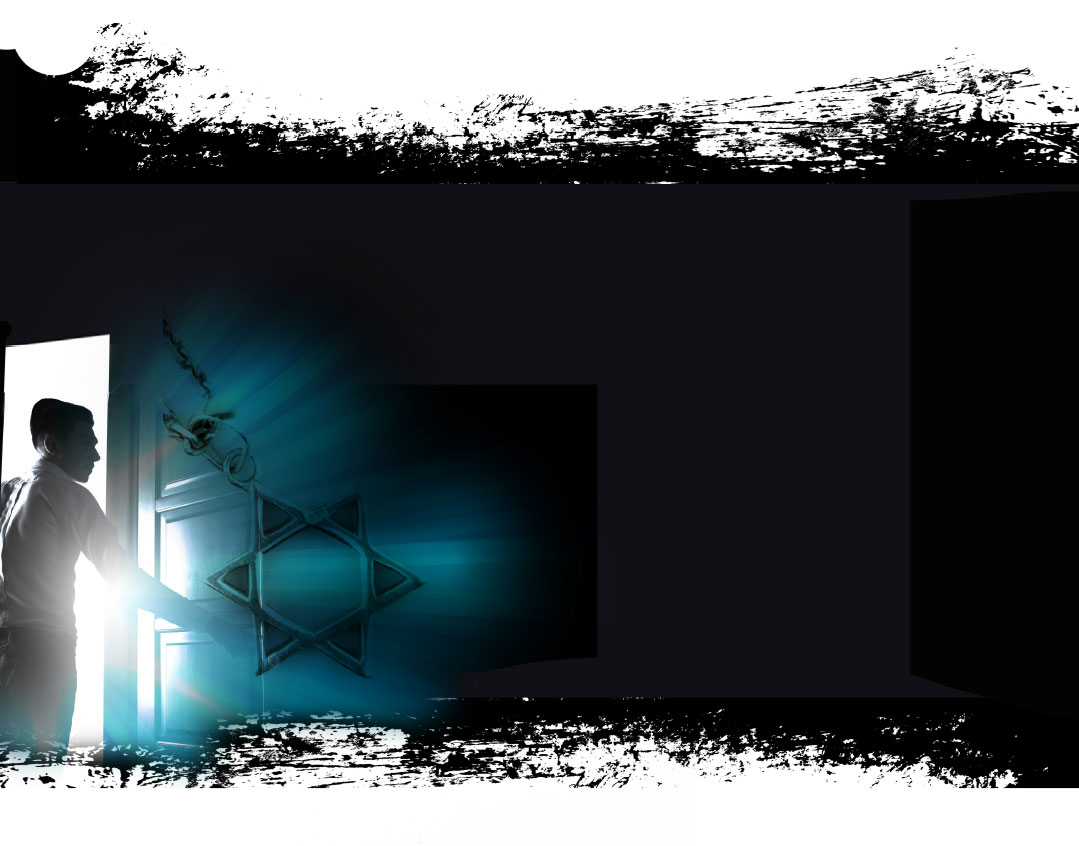Send Them Off as Jews: Chapter 1
| November 18, 2020Almost everyone wants a rabbi to visit at the end of life. There is a sense that it is a sacred time

Working as a rabbi with hospice patients is a bit like dropping behind enemy lines in a parachute.
You know the essentials of your job — provide comfort, give halachic guidance, answer questions, and, most importantly, be present for the patients and their families. But in reality, you’re constantly jumping into a fluid situation where you have little information, and tensions are high. And you never really know what you’ll have to do until your feet hit the ground.
I knew little about Linda. She was in her eighties, had no husband or children, and was close to the end of her life. She seemed at peace when I walked into her room, but she was no longer speaking, and the only person by her side was Loretta, her non-Jewish caregiver.
Loretta was happy to see me. She had spoken with a distant relative of Linda’s and asked if they should call a rabbi to visit Linda, as she seemed to have little time left. This relative told Loretta that they were just “casual” Jews. Although Linda would have a Jewish funeral, they would not be calling a rabbi before she died.
Loretta, who wore a cross around her neck, found this explanation somewhat bewildering, which is why she was visibly relieved when I offered to say the traditional end-of-life prayers at Linda’s bedside. She felt like it was the appropriate thing to do.
I had with me a printout of the tefillos that are said at the very last moments of life: Shema, Baruch Sheim, and Hashem Hu Ha’Elokim. They were translated into English, so I gave Loretta a copy in case she wanted to follow along. I said these eternal tefillos as Loretta read along in English: Shema, once; Baruch Sheim, three times; Hashem Hu Ha’Elokim, seven times, followed by Hashem Melech.
To us, these tefillos are instantly familiar: They are the same words we say at the climax of N’eilah, itself the climax of Yom Kippur. But I sensed that Loretta was confused. She was expecting, I assume, something different. You would naturally assume that a prayer for the end of life would include a request for peace or a description of the passage to the World to Come.
But there is nothing about that in the prayers we read in those final moments.
These tefillos are our expression of kabbalas ol malchus Shamayim, the way in which we proclaim Hashem our King. The words frame everything our life has been. We have lived in order to fulfill Hashem’s Will and to make His world a holier place. Through kabbalas ol malchus shamayim, we are declaring that our entire lives have been lived for Hashem. There is no prayer more fitting at this time.
How could I explain all this to Loretta?
I didn’t try. I simply assured her that I had said the right prayers, the ones Jews have said at these moments for thousands of years. I hope she believed me.
But with Alex, I tried a different approach.
The first thing Alex’s daughter Eileen wanted me to know when I came to see him was how little interest he had in religion.
Seeing that I was an Orthodox rabbi, Eileen told me about the last conversation her father had with his cardiologist, himself a frum Jew. Alex was getting weaker, and they were talking about his quality of life and for how much longer he wanted to pursue treatment. The cardiologist asked Alex, an immigrant from the former Soviet Union, to consider that life is more than eating and drinking and would still have meaning even if he was physically limited. Alex turned to his daughter and said, “The Soviets made a communist out of me. That is exactly what I believe — all there is to life is eating and drinking.”
Alex was not actually a communist; he never forgave the Soviets for what they did to him and his family. And even during that visit, he told me that he thanked G-d for giving him his daughter, a statement no Soviet communist would ever make. But Yiddishkeit certainly played no meaningful role in his life.
I visited Alex and his daughter, who was his only child, many times during his stay in hospice. Eileen was much more connected to Judaism than her father, and my presence was important to her. We talked about her grandparents and her grandson, their Jewish traditions, and how happy she was that her own son went to shul and was sending his son to a Jewish school. And she was devoted to her father: She hardly left his bedside for weeks.
The last time I visited Alex, it was obvious that he did not have long to live. With Eileen by my side, I told Alex — although he was no longer responding — that we were going to say the prayers that Jews have always said at this time of their lives. I said Shema, Baruch Sheim, Hashem Hu Ha’Elokim. When I finished, Eileen stood silently, teary but appreciating the sanctity of the moment.
Then Hashem put a thought in my mind.
“Your father may have been a communist,” I told Eileen, “but we are sending him off as a Jew.”
A friend who works with Jews from the former Soviet Union explained to me a phenomenon he has observed. Often, these holy Jews had little appreciation for Judaism as a religion, but they strongly identified as part of the Jewish nation. Ukrainians were from Ukraine, Kazakhs were from Kazakhstan, but Jews were a separate people. And while they might not have believed in the Torah, they performed mitzvos because they wanted to belong to the Jewish people.
This is another reason we say these tefillos at the end of life. They are our declaration that we belong to Klal Yisrael. We do not simply declare “Hashem Elokeinu Hashem echad”— we start with “Shema Yisrael.” Belonging to Klal Yisrael is part of our emunah in Hashem. Saying Shema at the end of life connects us to Klal Yisrael throughout the world and throughout the generations. We are saying the same words that Yaakov Avinu and his children said at the end of his life, more than 3,000 years ago.
Almost everyone wants a rabbi to visit at the end of life. There is a sense that it is a sacred time, a time when they are close to Hashem and where people can touch ruchniyus in a way that they cannot usually access.
And when it is all over, they can say, we sent them off as Jews.
Rabbi Daniel Rose is the rabbi at Bnai Jacob Shaarei Zion Congregation in Baltimore, Maryland. He used to serve as the chaplain and director of Jewish Hospice Services for Seasons Hospice and Palliative Care of Maryland.
(Originally featured in Mishpacha, Issue 836)
Oops! We could not locate your form.



